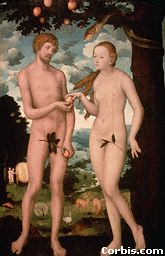| Dave from Phoenix . Lusting after Women When Dave from Phoenix of the Liberated Christians Website, was asked what the meaning of lusting after women in the Bible referred to as is said in Mathew 5, he responded with the following excellent response .. (reposted by permission) Math 5:27-28: An interpretation of this passage is that if you look at the Greek verb (lust more properly translated covet or desire), is the same word used in the Septuagint's translation of the 10th Commandment (not covet). In this case, Matthew has Jesus saying that covetousness, the desire to deprive another of his property, is the essence of adultery. Jesus was then reaffirming a quite traditional understanding of what is wrong with adultery. The Greek word here is, of course, epithumia, which also means "covet" and is the word used by the translators of the Septuagint to translate the Hebrew, chamad, in Ex. 21:17 "Thou shalt not COVET ." It is not coincidence, by the way, that "neighbor's wife" is included with the other PROPERTY listed in this text...like neighbors ox etc... In this case, Jesus was asserting that adultery does not consist primarily of sexual union of two people, at least one of which is married, but it consists rather in the intention, accomplished or not, to take what belongs to another. The purpose of the verse is to show no one is free of sin, but the nature of sin lies in impurity of the heart (taking from another man his wife) rather than the physical act itself. This is different from consensual nonmonogamy. Its like the Rabbi said at the swing club, "I don't want to own your wife, just borrow her!" Now, lets look at how porneia is used here, In discussing Math 19:9 "Porneia": "The exemption for porneia (harlotry) must refer to the provision in Torah which allowed a man to reject his wife who had not shown proof of virginity. Such a bride was said to have 'played the harlot' (Ekporneuo in the Septuagint). Since a women could never have sex outside of her marriage, but a man always could, this was an important issue. Under the Torah, a married women committed adultery when she had sex with another man - whether he was married or not. (Violated womens' husbands exclusive right of sex over her regardless which I refer to as property rights). It was impossible for a married man to commit adultery, since he would only be violating his own rights (his wife had no say over husbands having sex with others, or bringing in more wives or concubines). Jesus however, uplifted womens rights, that she too now had "a permanent and indissoluble claim on him as her sexual property" Thus is sexual freedom was to be no greater than try and sum up another big area, Countryman explains the verse "Let whoever can receive it receive it" in 19:11-12 ONLY when voluntarily agreed upon by both and NOT as a new law for Christians. It was for those that where the man had no intrinsic relation to a family where they could give up their patriarchal positions and not keep their households in subjection to them. Again, this has nothing to do with consenting nonmonogamy or loving singles sexuality. The Church (not the bible) is so obsessed with sexual sin that it often ignores the context of a passage in order to prop up it's views, right or wrong. Read on in Math through verse 32, which, in the paragraphing of many Bible versions, is joined to 27-28. This is a challange to Jewish men to stop treating their wives unfairly by demanding divorce for frivolous reasons, a practice that was quite common at various times in Jewish history. Dave in Phoenix of LibChrist Forum **************************************** And then I, David Jay Jordan from B.C. responded with ...... As lust seems to be the act of trying to take or possess or control. real love or real sex is sharing and caring and not controling. For didn't, King David lust after Bathseba and actually in a sense rape her with his power as king as she didn't deny him. But this type of lust was control and a horrible sin because as the prophet Nathan said, he STOLE her from someone that had only had one lamb. (2 Samuel 12) And then David complicated things by trying to cover his sin, by having Uriah, the husband killed, and yet David's sin was found out and seen by the Lord and David payed for his lust. He had so many lambs freely given to him by the Lord and the Lord said he would give him even more lambs or women if he just asked. So sex wasn't the sin, lust and control which actually led to murder WAS. And yet through it all King David learned to control himself, and have humility, and even become a 'man after the Lord's heart' through his repentance. In My Opinion David Jay Jordan |
 |